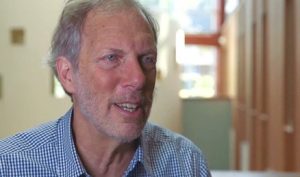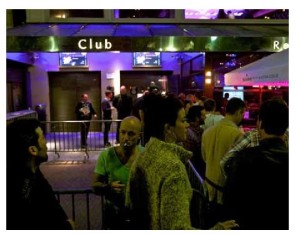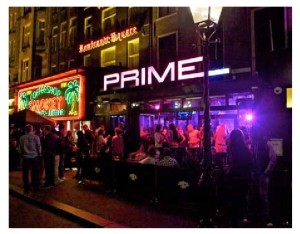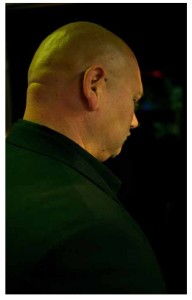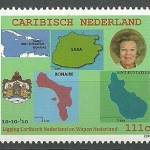Joods Cultureel Kwartier: Minisymposium ~ De joodse diaspora in perspectief. 18 december 2019
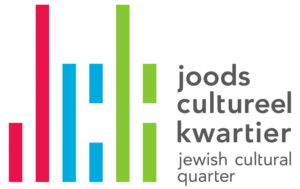 Weinig ervaringen hebben zo veel invloed gehad op de joodse identiteit als het leven in de diaspora. Het jodendom is voor een belangrijk deel ontstaan buiten het Beloofde Land.
Weinig ervaringen hebben zo veel invloed gehad op de joodse identiteit als het leven in de diaspora. Het jodendom is voor een belangrijk deel ontstaan buiten het Beloofde Land.
In Babylonië en Egypte leefden al vroeg gemeenschappen die zich als ‘Judees’ of ‘joods’ definieerden, misschien al eerder dan in Judea het geval was.
Recent gepubliceerde kleitabletten en papyri werpen een verrassend nieuw licht op deze vroege diaspora. Reden voor het Joods Historisch Museum om in samenwerking met het Menasseh ben Israel Instituut, het Nederlands Genootschap voor Joodse Studiën en de Universiteit van Amsterdam een studiedag te beleggen. Een keur aan Nederlandstalige specialisten geeft inzicht in de huidige stand van zaken in het onderzoek.
Zie voor programma: https://jck.nl/event/minisymposium-de-joodse-diaspora-perspectief?
Noam Chomsky And Robert Pollin: If We Want A Future, Green New Deal Is Key
Climate change is by far the most serious crisis facing the world today. At stake is the future of civilization as we know it. Yet, both public awareness and government action lag way behind what’s needed to avert a climate change catastrophe. In the interview below, Noam Chomsky and Robert Pollin discuss the challenges ahead and what needs to be done.
Noam Chomsky is Professor Emeritus of Linguistics at MIT and Laureate Professor of Linguistics at the University of Arizona. Robert Pollin is Distinguished University Professor of Economics and co-director of the Political Economy Research Institute at the University of Massachusetts at Amherst. Chomsky, Pollin and Polychroniou are co-authors of a book on climate change and the Green New Deal, forthcoming with Verso in Spring 2020.
C.J. Polychroniou: Noam, let me start with you and ask you to share your thoughts about the uniqueness of the climate change crisis.
Noam Chomsky: History is all too rich in records of horrendous wars, indescribable torture, massacres and every imaginable abuse of fundamental rights. But the threat of destruction of organized human life in any recognizable or tolerable form — that is entirely new. The environmental crisis under way is indeed unique in human history, and is a true existential crisis. Those alive today will decide the fate of humanity — and the fate of the other species that we are now destroying at a rate not seen for 65 million years, when a huge asteroid hit the earth, ending the age of the dinosaurs and opening the way for some small mammals to evolve to pose a similar threat to life on earth as that earlier asteroid, though differing from it in that we can make a choice.
Meanwhile the world watches as we proceed toward a catastrophe of unimaginable proportions. We are approaching perilously close to the global temperatures of 120,000 years ago, when sea levels were 6-9 meters higher than today. Glaciers are sliding into the sea five times faster than in the 1990s, with more than 100 meters of ice thickness lost in some areas due to ocean warming, and current losses doubling every decade. Complete loss of the ice sheets would raise sea levels by about five meters, drowning coastal cities, and with utterly devastating effects elsewhere — the low-lying plains of Bangladesh for example. This is only one of the many concerns of those who are paying attention to what is happening before our eyes.
Climate scientists are certainly paying close attention, and issuing dire warnings. Israeli climatologist Baruch Rinkevich captures the general mood succinctly: After us, the deluge, as the saying goes. People don’t fully understand what we’re talking about here…. They don’t understand that everything is expected to change: the air we breathe, the food we eat, the water we drink, the landscapes we see, the oceans, the seasons, the daily routine, the quality of life. Our children will have to adapt or become extinct…. That’s not for me. I’m happy I won’t be here.
Yet, just at the time when all must act together, with dedication, to confront humanity’s “ultimate challenge,” the leaders of the most powerful state in human history, in full awareness of what they are doing, are dedicating themselves with passion to destroying the prospects for organized human life. Read more
To Confront Climate Change, We Need An Ecological Democracy
Climate change represents the biggest existential crisis that has ever faced the human race. However, we have yet to come to terms with the moral, political and economic dimensions of the climate crisis. As we confront climate change, we must ask: What would real climate justice look like? And what is the connection between the pursuit of true democracy and the battle to stave off a climatic change catastrophe? Marit Hammond, a lecturer in environmental politics at Keele University in the U.K., advocates for the necessity of an “ecological democracy” in order to meet the climate emergency urgently and sustainably. In this interview, Hammond offers insights on what this new form of democracy would look like and how we can get there.
C.J. Polychroniou: The challenge of climate change has been confronted so far on both political and economic grounds. Yet fewer people are engaging in conversations about the moral element of climate change. Isn’t global warming, first and foremost, a moral issue?
Marit Hammond: It is. However, it is important to stress that this moral dimension is not separate from, but rather stretches into the political and economic dimensions — for it is not just about private individuals’ moral behavior.
Climate change is a moral issue insofar as it is knowingly caused by human actions, and in turn causes significant, existential harm — avoidable harm — to humans, other species, precious cultures and ecosystems. As is widely known, threats such as crop failures, weather extremes and sea level rise threaten the quality of life, if not life itself, particularly of those who already have the least resources to draw on to manage their lives. It is those who cannot afford to protect themselves against heat waves that die or suffer severe health problems; those already living in precarious, [severe] weather-prone regions are forced to migrate elsewhere and make themselves economically vulnerable in the process. Although climate change is a complex phenomenon at the planetary level, it is causing suffering in the lives of concrete individuals — as well as the irreversible loss of countless species and unique ecosystems.
If there were a more direct cause-effect relationship, it would go without saying that causing such harm would be immoral. The only difference with climate change is that the actions that cause it are only indirectly related to the suffering it causes, and distributed amongst the global population — everyone who lives in an industrial society contributes to climate change. Thus, it is more difficult to determine intentionality and agency. Moral blame applies where harm is caused intentionally or through negligence — where there is agency to either cause or avoid [dealing with] it. In the case of climate change, this is the clear case, where people intentionally and knowingly lead high-emission lifestyles, such as driving, flying, or otherwise consuming more, or in more highly emitting ways, than they need.
Yet to a significant extent, individuals in industrialized societies actually have very little agency over their lives in these regards. Even those who want to be morally responsible, who have every intention to stop climate change and avert the suffering it causes, are forced to live the kinds of life the socio-economic system around them expects and demands; they inevitably rely on the agricultural, industrial and energy systems that are much more to blame. To make a living, they mostly have no choice but to contribute to a growth-oriented economy, whose ideology of exploitation (of people and nature alike) is the real underlying cause of climate change.
Thus it is important to remind ourselves of the moral dimension of climate change so that people don’t just see it as a managerial challenge to embrace — like another phase of modernization, which the growth economy has to adapt to but can ultimately benefit from — but as a prompt to get very angry about this wider system we are forced to live in. As concern about climate change is now growing amongst Western populations, it has become fashionable to consume ‘greener’ products and to object to the use of plastics, for example. These responses fit into a picture of embracing the need for societies to overhaul themselves, to become better by becoming greener — the spirit of ecological modernization. They do not, however, challenge consumerism per se, accept the need for general restraint and degrowth, or push for radical change at the level of the socio-economic system and its exploitative ideology. If it is at that level that climate change is caused, this is where the moral outrage people feel needs to be directed at. Now that we know about climate change, we have a moral responsibility not just to drive less and carry a reusable coffee mug, but to condemn the political and economic structures that are the real driver of the problem. Read more
Buitenstaander en Bondgenoot ~ De werkbeleving van portiers in de Amsterdamse binnenstad
“Een portier moet politieman, diplomaat, rechter, ruige jongen en maatschappelijk werker zijn en bovenal een gentleman.
Van alle mensen is hij de ene keer degene wiens aanwezigheid het dringends noodzakelijkst is en een andere keer de meest ongewenste.”
(Timo, portier)
Dit onderzoek is uitgevoerd door het Bonger Instituut voor Criminologie van de Universiteit van Amsterdam, in opdracht van stadsdeel Centrum, gemeente Amsterdam – Rozenberg Publishers – ISBN 978 90 3610 253 7 – 2011
Foto’s: Floris Leeuwenberg, Amsterdam
www.florisleeuwenberg.com
Deze uitgave is mede mogelijk gemaakt door de financiële ondersteuning van Koninklijke Horeca Nederland, Universiteit van Amsterdam
Bonger Instituut voor Criminologie – Postbus 1030 – 1000 BA Amsterdam
Inhoudsopgave
1. Inleiding
Een beroep vol dynamiek
De portier als boeman
Wantrouwen en kloven dichten
De portier als buitenstaander
Onderzoeksgebied
Het onderzoek
2. Negatieve beeldvorming en imagoverbetering
De portier en de mondige burger
Verbeterde samenwerking
3. Amsterdamse portiers
Vroeger
Geen roeping
Steeds meer regels
Korte lontjes en minder slagkracht
Pasjessysteem en softere portiers
Meer indrinken, minder fooi
Buitenstaander en Bondgenoot ~ Inleiding
Donderdag, 26 mei 2011, kwart over een ’s nachts. Het uitgaansleven op het Rembrandtplein is nog niet echt op gang gekomen. Als we een rondje lopen begint het licht te miezeren. Nergens rijen bezoekers. De stappers die naar binnen willen kunnen vaak meteen doorlopen. Een knikje naar de portier is voldoende.
De portiers ogen ontspannen. Tijd om met een van hen een praatje te maken. Hij zegt van het nachtleven te houden, maar baalt dat de sfeer ruwer is geworden. Wat hem verbaasd is dat het vaak agressie om niks is. Alsof sommigen onder hoogspanning staan. Portiers zijn goede bliksemafleiders. Een ‘nee’ wordt al als een aanval gezien. En als je noodgedwongen moet ingrijpen wordt er meteen aangifte gedaan tegen de portier. Hij zegt er af en toe niet meer met zijn verstand bij te kunnen. “Uitgaan doe je toch voor de gezelligheid?” De portier kijkt ietwat mistroostig. Het is nog steeds rustig op het plein. Maar schijn bedriegt, want vijf minuten later is er opeens opschudding in het naastliggende feestcafé. We zien een opgefokte jongen die heel snel door een portier naar de grond wordt gedrukt. “Ophouden nou”, zegt de portier. Hij neutraliseert de spartelbewegingen van de jongen die zich blijft verzetten. “Ik heb niets gedaan”, brult de jongen. “Ik kom hier al 15 jaar. Waarom word ik dan zo behandeld?” Onze portier is ernaartoe gesneld en belt de horecalijn. Intussen staat er ook een rij bezoekers voor zijn eigen deur, die nu door één portier wordt bemand. Iedereen kijkt naar de twee kronkelende mannen op de stoep. Na zo’n drie minuten arriveren twee agentes. De portier laat de jongen opstaan en draagt hem over. De jongen roept weer dat hij niets heeft gedaan en begint daarop demonstratief zijn zakken als teken van onschuld te legen. “Ik wil aangifte doen!”, roept hij een paar keer geëmotioneerd tegen een van de agentes. Deze maant hem te kalmeren en legt uit dat hij op deze manier erg agressief over komt. De jongen luistert niet en gaat onverstoorbaar verder. Er verschijnen nog twee agenten. Net voordat de jongen in de boeien gaat, weet hij zich nog te ontdoen van een witte wikkel, terwijl hij blijft scanderen dat hij onschuldig is. Bij vertrek checkt een agent de omgeving, waarbij zijn oog valt op de wikkel bij de boom. Hij raapt het op en samen met de jongen vertrekken de agenten richting bureau Prinsengracht.
Een beroep vol dynamiek
Het portiersvak zit vol dynamiek. Een rustige situatie kan plotsklaps omslaan in een snelle actie. ‘Portier’ is de algemene benaming voor wat tegenwoordig ook wel ‘gastheer’, ‘horecabeveiliger’ en dergelijke heet. Het metier van portier is in het afgelopen decennium aanzienlijk veranderd, niet in het minst door nieuwe wetgeving en convenanten tussen gemeente, politie en horeca. In april 1999 trad een nieuwe wet op de particuliere beveiligingsorganisaties en recherchebureaus in werking. Het beleid van de overheid om portiers op te leiden en voor hun aanstelling te controleren op antecedenten werd gemotiveerd door verschillende incidenten in het begin van de jaren negentig, die gepaard gingen met fysiek geweld. Portiers moesten voortaan in dienst zijn van een horecagelegenheid of van een beveiligingsbedrijf, dat hen weer verhuurt aan de horeca. Read more
Buitenstaander en Bondgenoot ~ Negatieve beeldvorming in imagoverbetering
Zonder uitzondering balen portiers in de twee uitgaansgebieden soms van de negatieve beeldvorming over hun vak. Veel kwalificaties berusten op vooroordelen – en ze komen allemaal voorbij tijdens ons veldwerk. Portiers worden betiteld als ‘fout’, ‘anabolen spuiters’, ‘ongeletterde imbecielen’, ‘criminelen’, ‘valse kickboksers’, ‘ongevoelige klootzakken’, ‘domme kleerkasten’, ‘machtswellustelingen’ en zo kunnen we nog wel even doorgaan. Portiers hebben kortom een flink imagoprobleem. Deze negatieve beeldvorming leeft niet alleen onder veel stappers in het uitgaansleven, maar wordt ook geregeld in de media geventileerd.
Gezagsdragers en beleidsambtenaren die dichter bij de deurproblematiek staan, weten vaak beter. Maar zelfs in deze kringen bespeuren portiers soms stigmatiserende reflexen als het over hun werk gaat. Geen van de geïnterviewde portiers zegt de illusie te hebben dat de heersende negatieve beeldvorming na dit (bescheiden) onderzoek drastisch zal veranderen.
Maar wat ze wel hopen, is dat de partijen waar portiers beroepsmatig mee worden geconfronteerd (o.a. gezagsdragers, horeca-eigenaren, ambulancepersoneel, bestuurders, agenten en stapvolk) meer inzicht krijgen in de deurproblematiek zoals zij dit beleven. Sjors weet dat er veel over zijn vakbroeders wordt beweerd, maar twee dingen wil hij wel kwijt alvorens we hem interviewen. Niets is alleen zwart of wit in de portierswereld. En portiers zijn net als andere burgers gewoon mensen, maar ze mogen wel de klappen opvangen. En wat ook nog wel eens over het hoofd wordt gezien, is dat portiers zich soms ook maatschappelijk werker en hulpverlener voelen.
De portier en de mondige burger
Portiers bemerken vaak als eerste de veranderende mores in het uitgaansleven. Ze voelen zich niet zelden een soort ‘schietschijf’. Het uitgaansleven op de twee pleinen is hectischer geworden. En meer massa betekent ook meer druk op de deur. De oudgedienden vinden dat burgers vooral in de breedte een stuk mondiger zijn geworden, maar niet per se beleefder. Portiers hebben vaak het gevoel dat ze het nooit goed kunnen doen. Of ze grijpen te snel in, treden te hard op, discrimineren bij voortduring of gooien hun kont tegen de krib als ze (alweer) een cursus moeten doen. Door allerlei nieuwe wet- en regelgeving vinden ze dat het portierswerk complexer is geworden. Toch willen ze niet zitten meesmuilen. Portier zijn is ook een avontuurlijk en spannend beroep en soms op het randje volgens Timo: “Want op de rand van de afgrond is het uitzicht het mooist.”
Verbeterde samenwerking
Als we portiers vragen wat er beter kan in de samenwerking met andere partijen, dan horen we bijna steevast dat beleidsmakers vaak geen flauw benul hebben van de deurpraktijk. De ambtenaren en bestuurders die mooie plannen en antidiscriminatieprogramma’s bedenken, zouden voor de aardigheid eens een nachtje aan de deur moeten staan. “En dan niet met een agent erbij! Misschien dat er op het stadhuis dan wat meer begrip komt voor ons werk.”
Toch moeten portiers – zij het soms schoorvoetend – toegeven dat er de laatste jaren ook progressie is geboekt. De samenwerking met politie op de beide pleinen is verbeterd en er wordt meer intensief gepraat over de deurproblematiek. Er blijven evenwel genoeg punten over die hen dwars zitten.



